Ioanna Platania in her Master’s thesis entitled “Domestic scenes in Athens – Activating the void in the urban landscape of Exarcheia” perceives the lack of public spaces in the city of Athens as a sign of an urban design that prioritizes individualism over collectivism. The project develops a strategy of ‘reshaping’ the city’s urban environment, focusing on incorporating domesticity into unused urban spaces. This spatial approach tends to blur the boundaries between private and public spaces.
This project thoroughly examines the urban landscape of Athens and proposes a new strategy to address the issue of the lack of public spaces in the densely packed city.

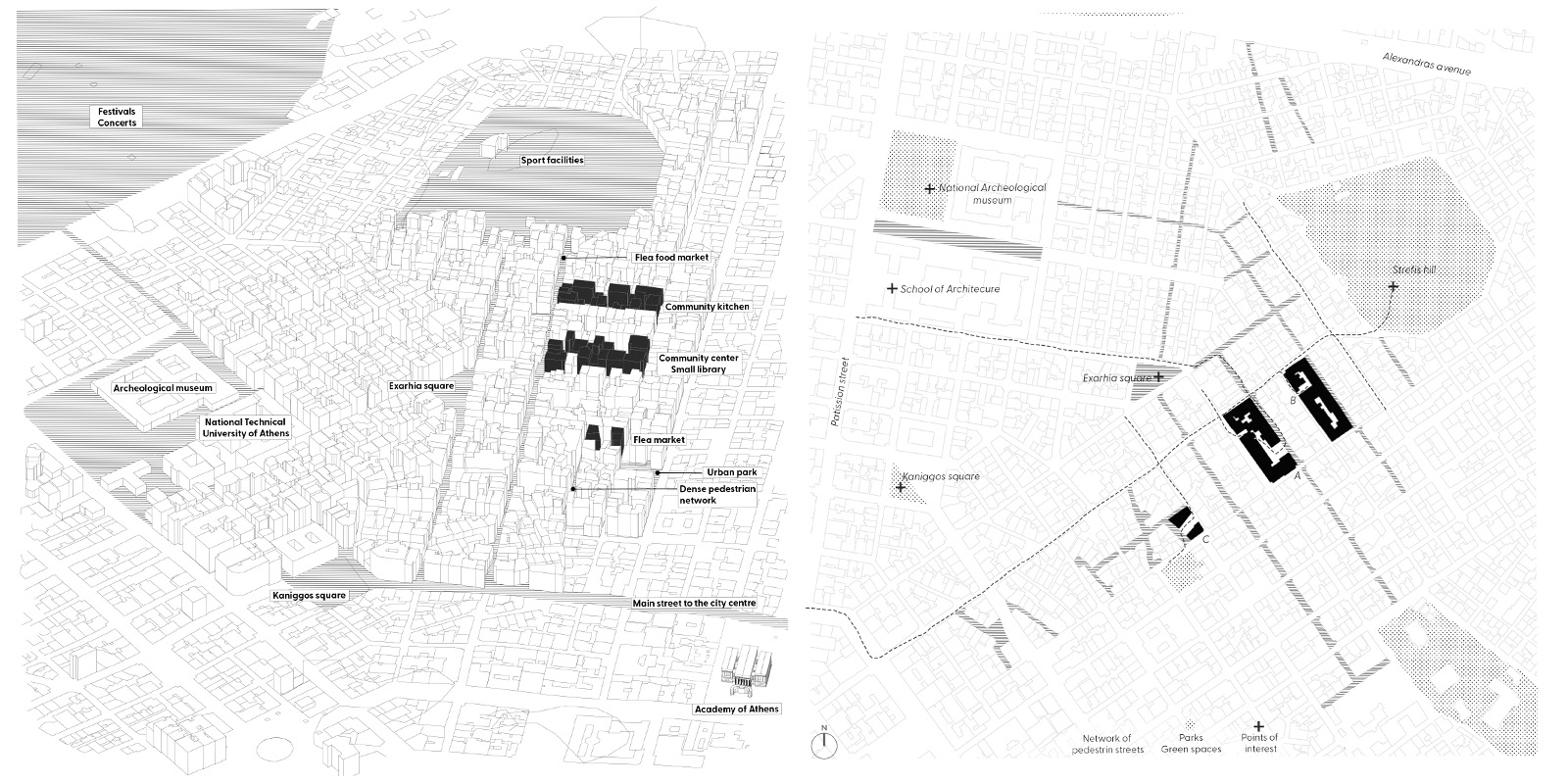
The scarcity of public spaces in Athens is a critical problem that stems from an urban design that prioritises individualism over collectivism.
As a result, the city has a fragmented urban environment with no cohesive public spaces or regulations. It is crucial to implement effective planning strategies to reshape the city’s urban environment and establish a balance between personal interests and communal needs.
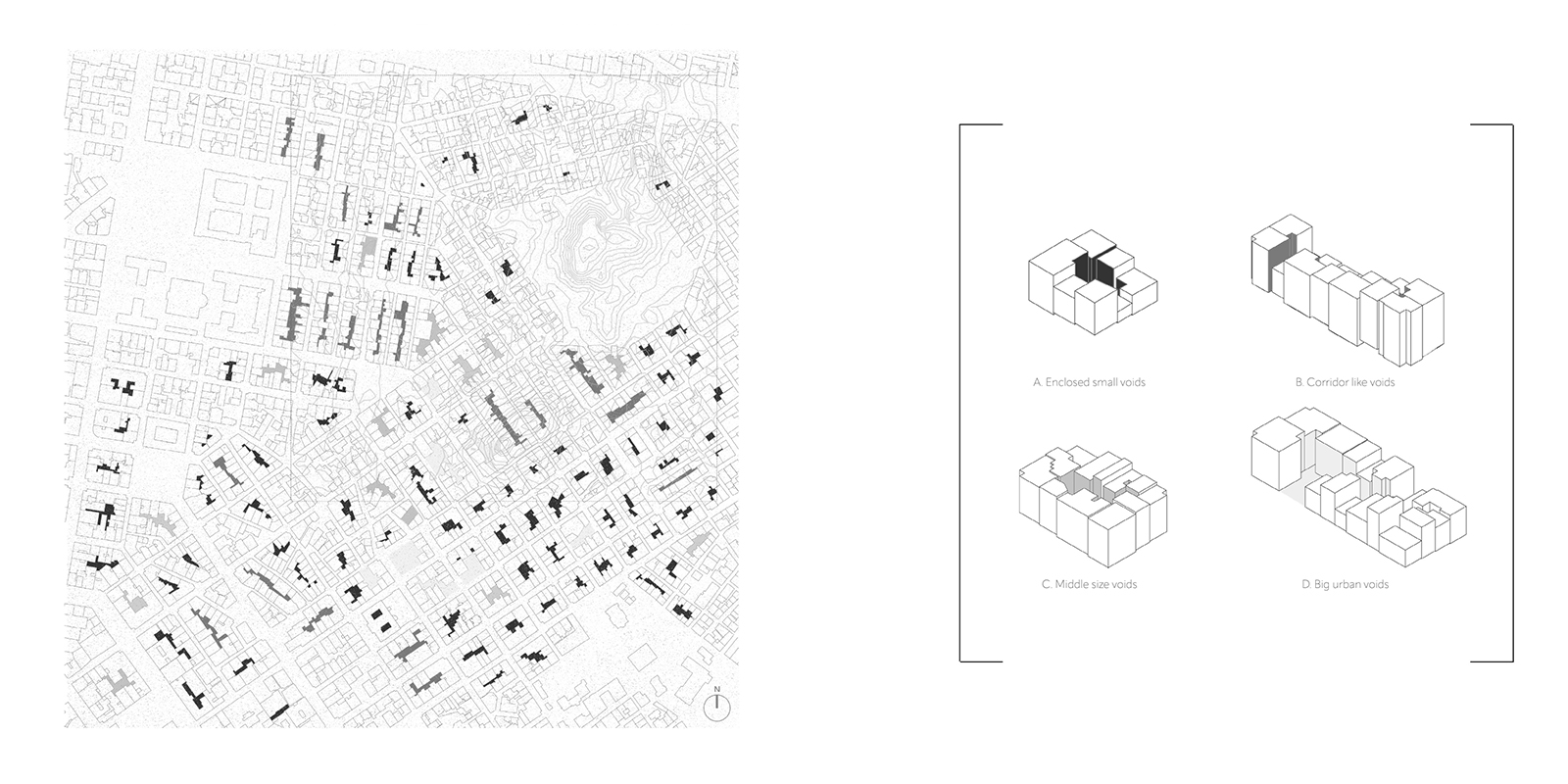
This study aims to uncover Athens’ public spaces’ potential for revitalisation and infusion of new dimensions by examining the cityscape, including the interior part of the blocks and ground- level activities.
The design approach focuses on incorporating domesticity into Athens’ urban environment. The aim is to transform unused urban spaces into domestic scenes to revitalise and activate these areas throughout the city.
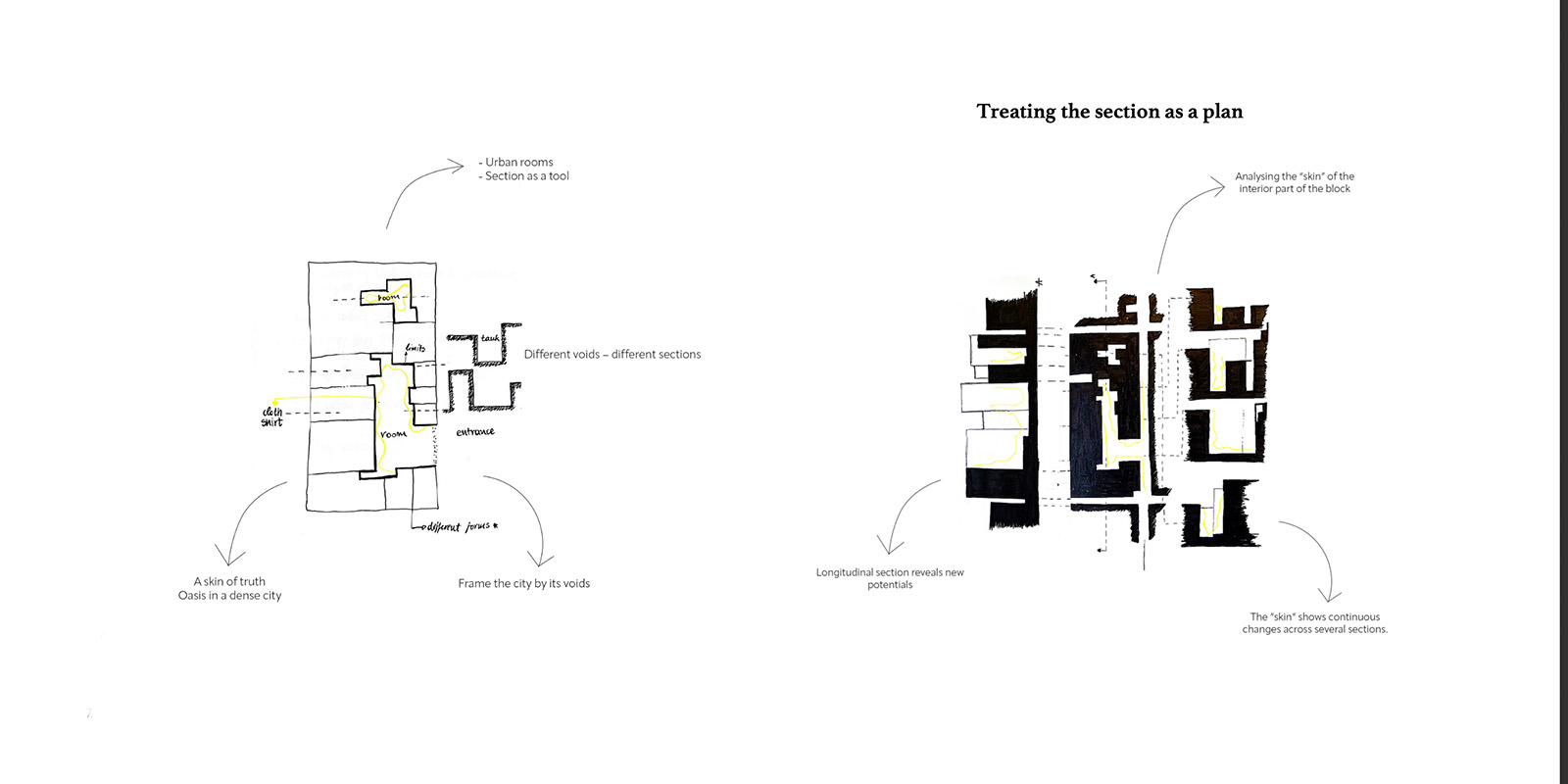
These neglected spaces can be transformed into popular hubs and host new activities that integrate the idea of domesticity in the urban landscape. The main strategy is to create a network of domestic exteriors within the blocks that are integrated into the existing network of public spaces.
By integrating elements and qualities of domestic environments, these neglected areas can be filled with a sense of familiarity, comfort, and human scale, creating intimate settings where residents can connect and interact.
Drawing inspiration from the world of theatre, these domestic scenes become fascinating microcosms within the larger urban fabric narrative.
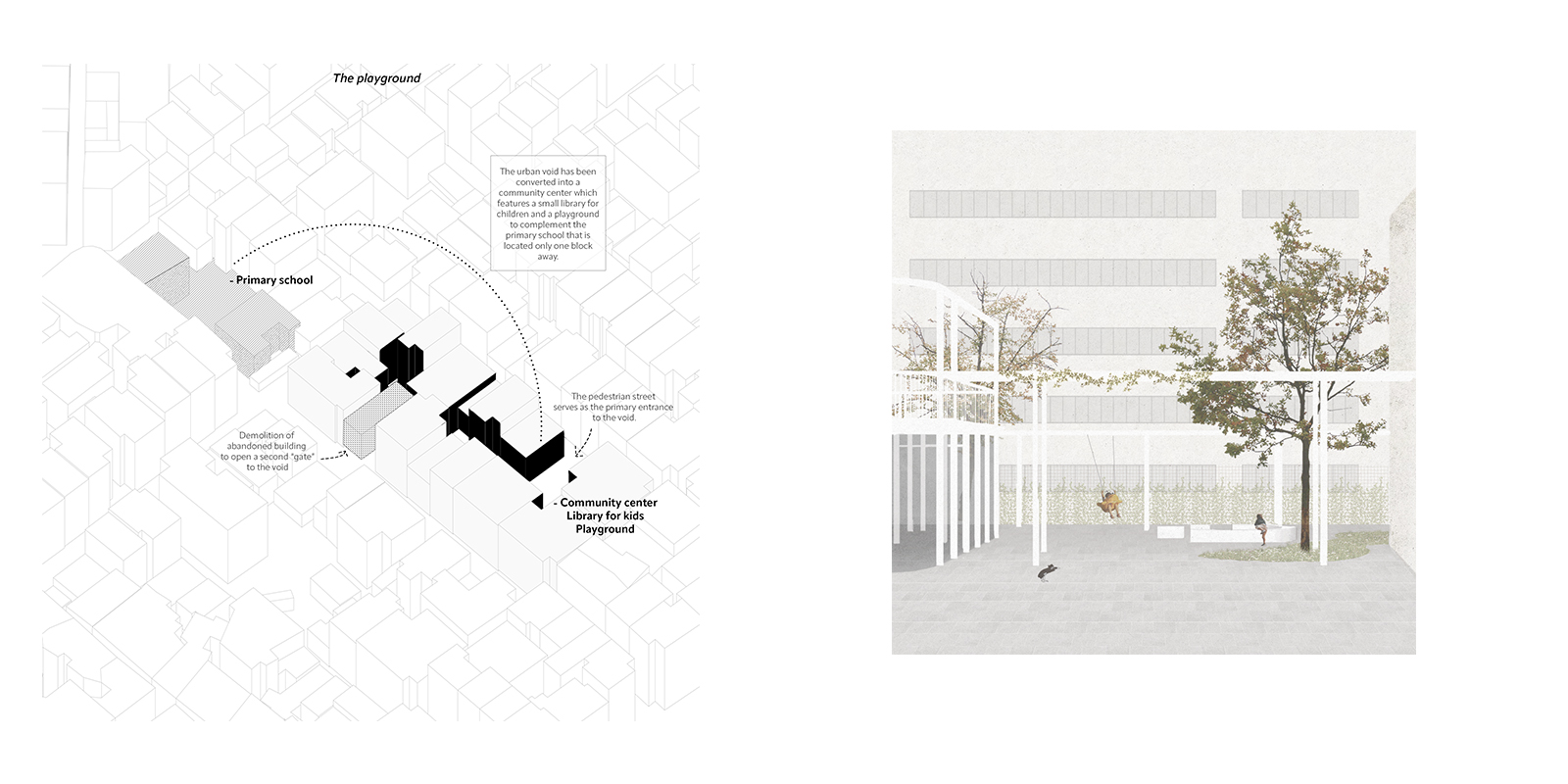
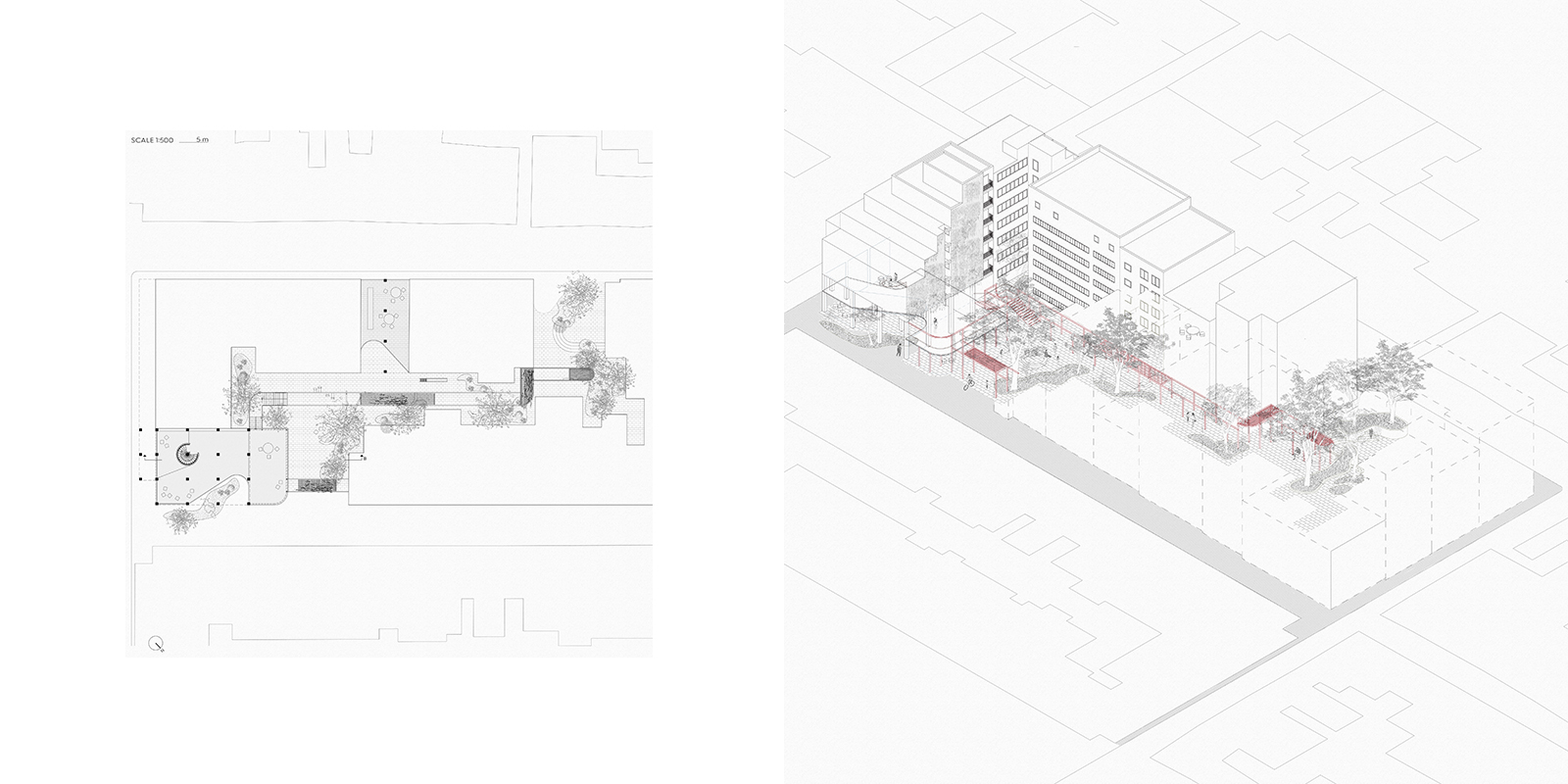
The case studies are three blocks in the urban context of Exarheia neighborhood, The human scale proportions of the voids and the existing sting character of these spaces transform this space into a scene created by the residents.
Elements such as light, shadow, materials and vegetation further enrich these scenes, which now have a domestic-like use, such as a living room, a kitchen and a playroom.
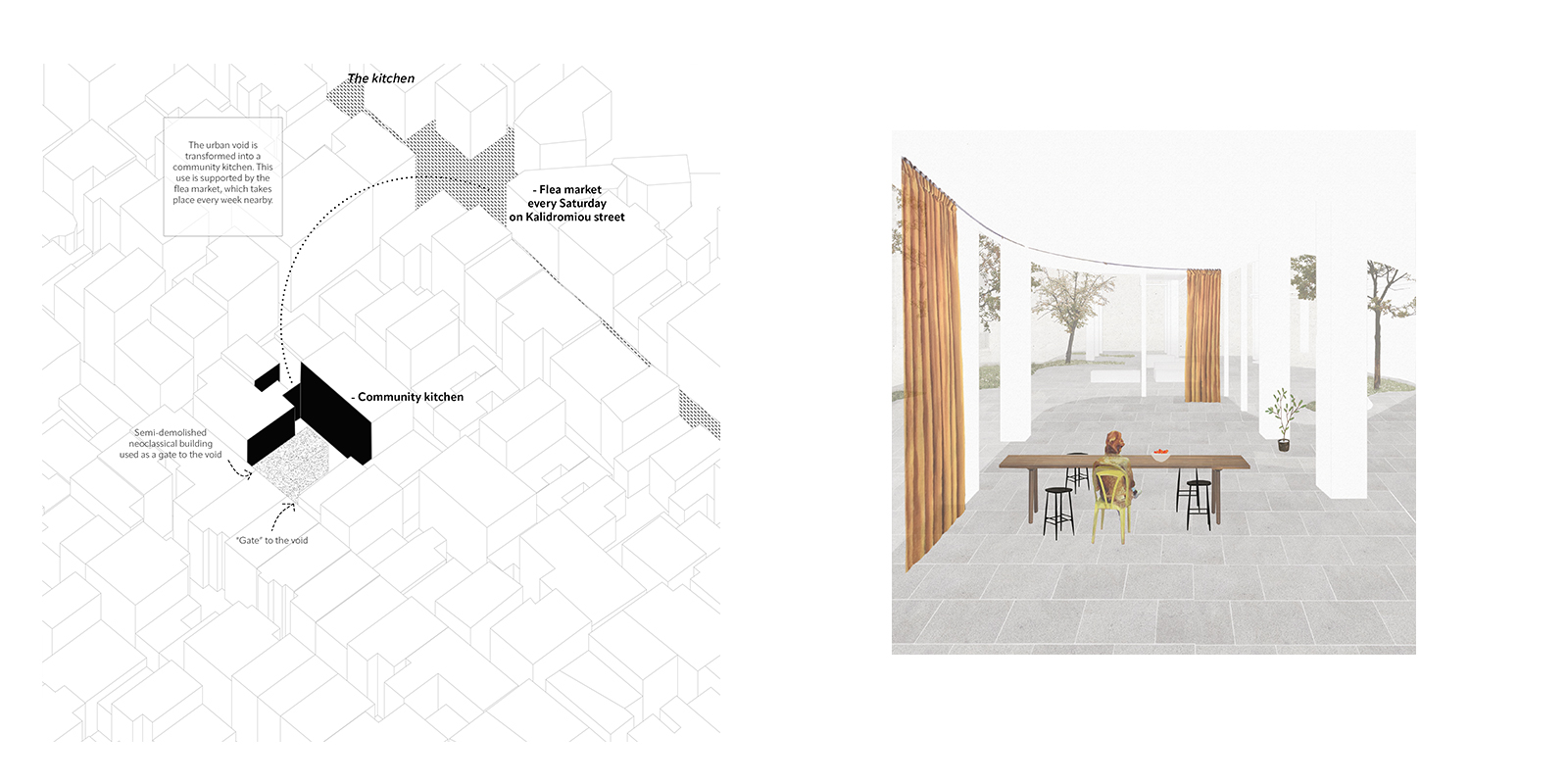
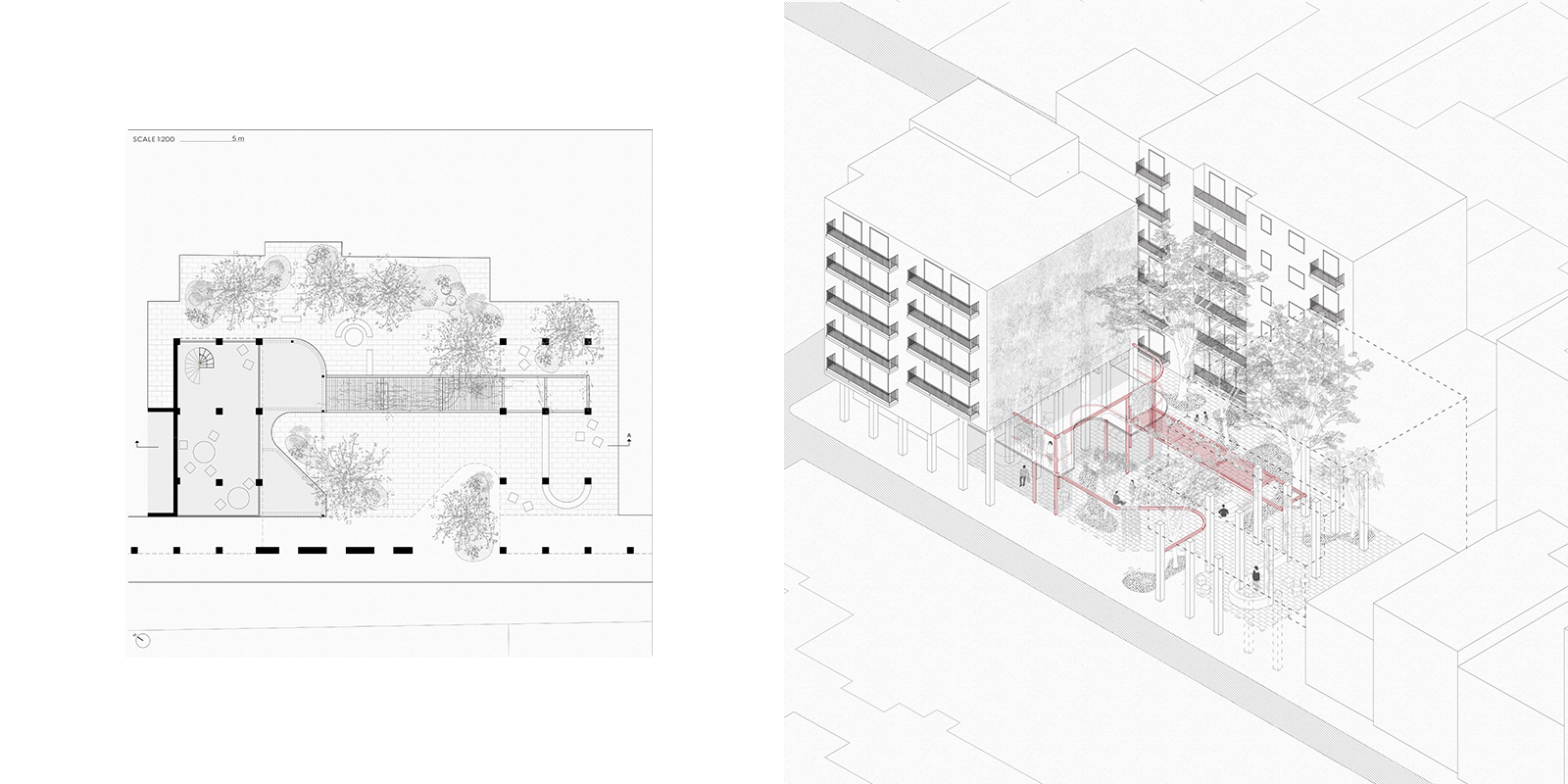
The transformation into a community centre and a playground mimics the playroom of a domestic setting. The kitchen is a more functional area in a domestic setting that serves as a space for meal preparations, food storage and culinary experiences. The “living room”, which is one of the most important spaces in a house, can be integrated by creating a flea market or a seating area.
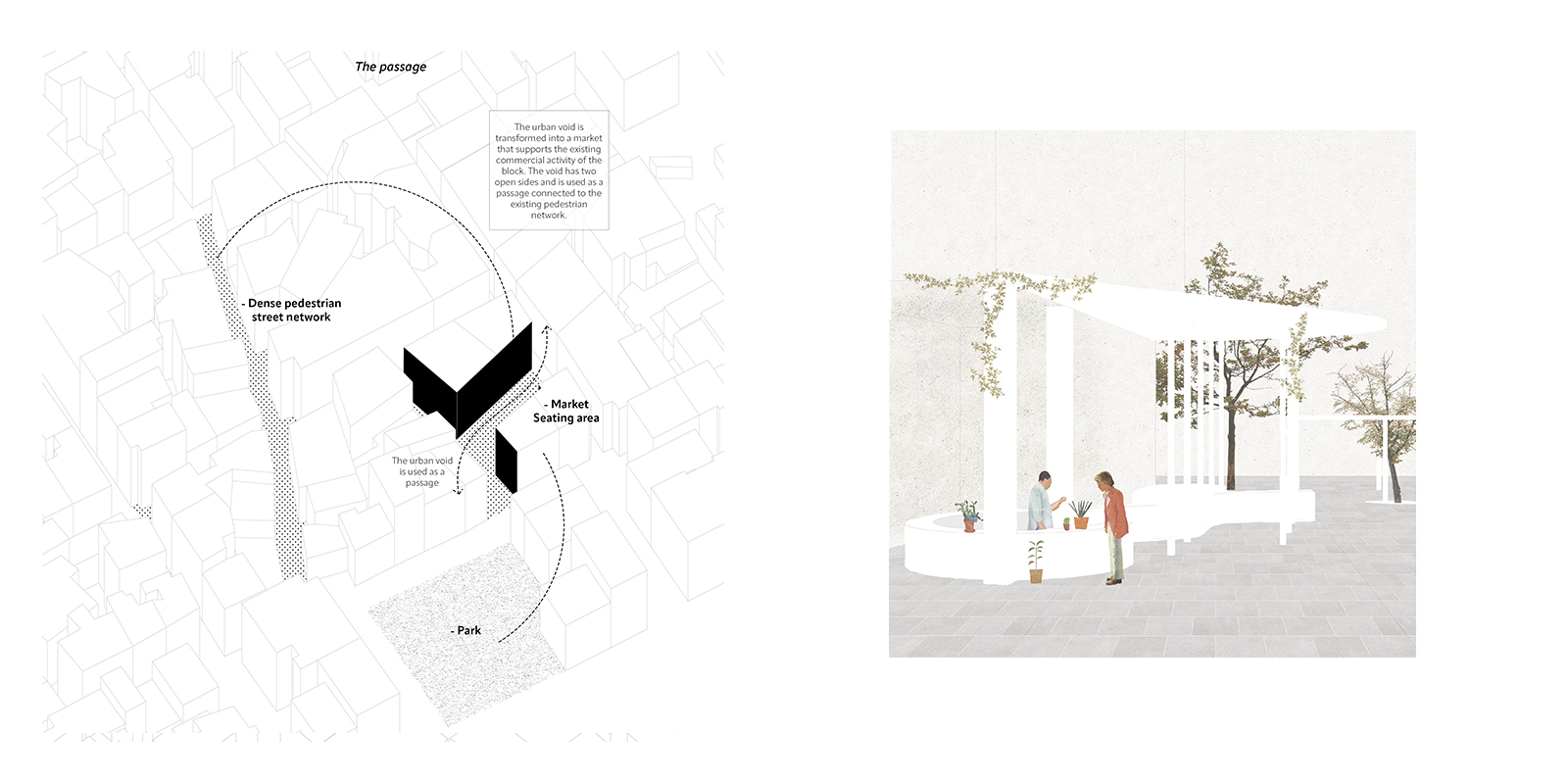
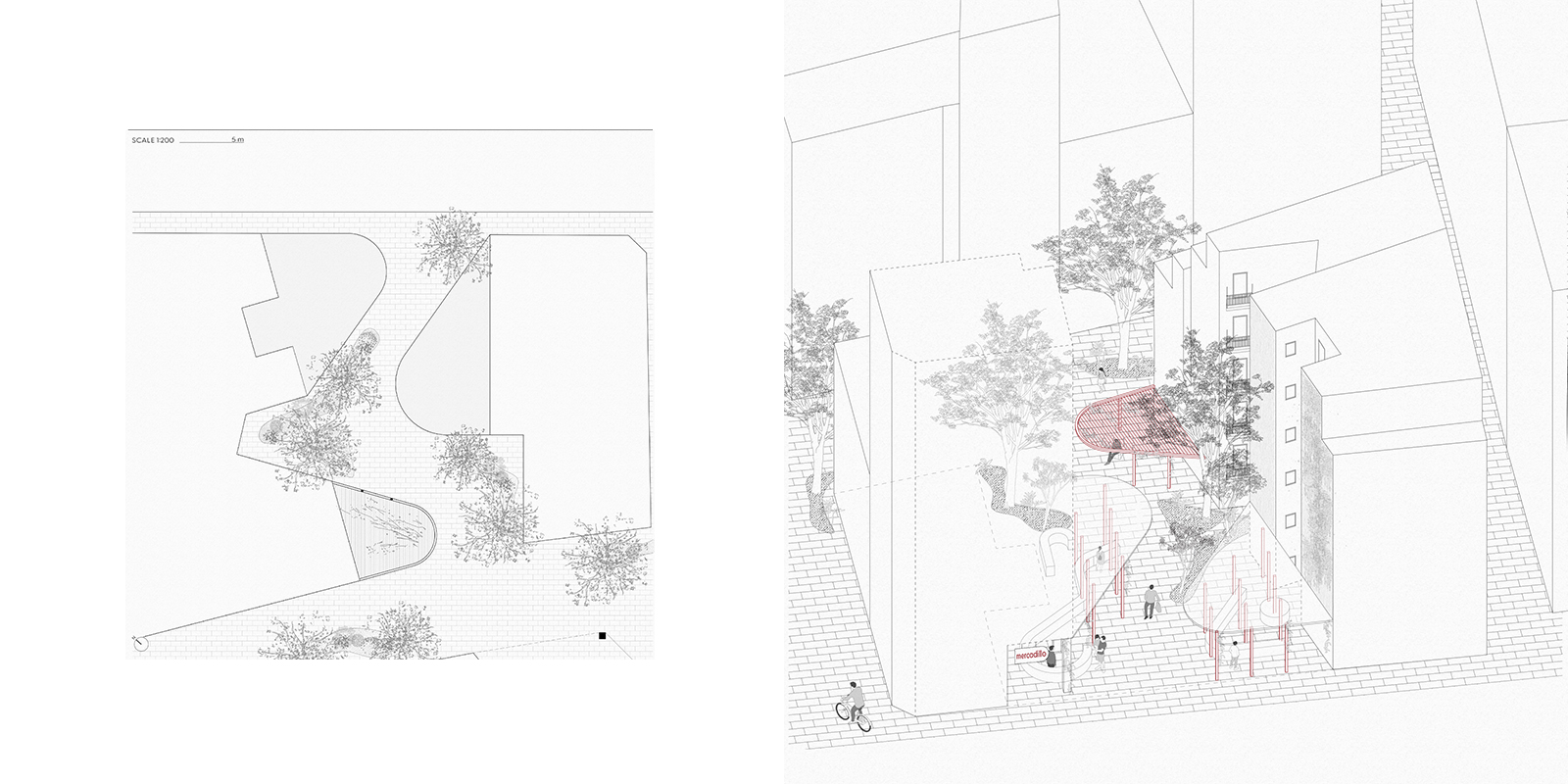
These spaces can be customised to the needs of the residents, by using steel structures that can be transformed into elements of different scales.
This approach can greatly improve the daily life of residents and enrich the public space with different qualities, ultimately contributing to a more vibrant and cohesive city, while this urban technique can be widely used to blur the boundaries between private and public spaces, creating more human-centred public areas throughout the city.
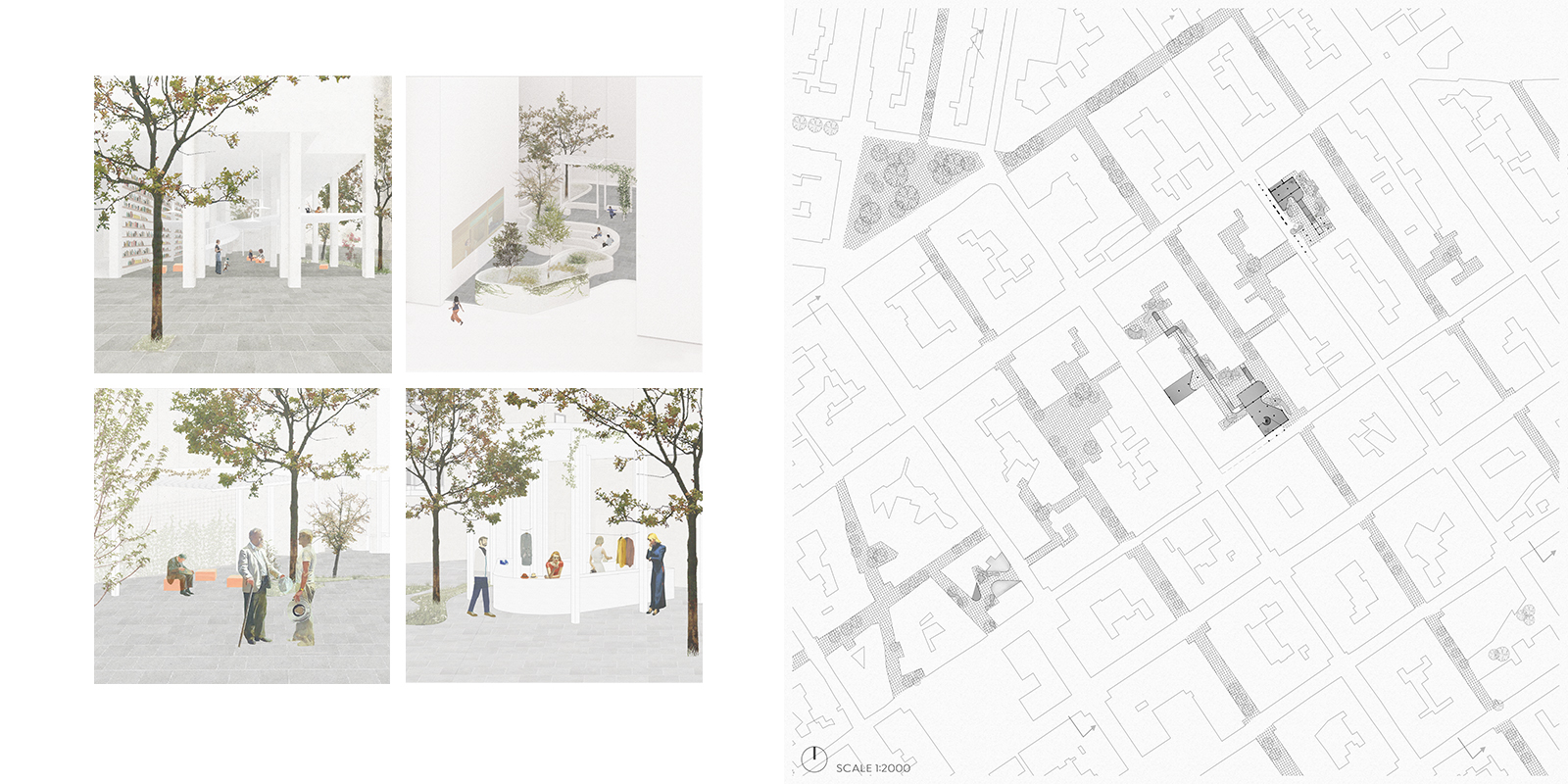
The proposed urban strategy aims to balance private and public, resulting in a cityscape that embraces its diverse architectural heritage, while also promoting communal vitality. Through this research, I hope to establish a comprehensive and academically sound framework for revitalising Athens’ urban landscape, redefining its public spaces, and ensuring a sustainable future for the city.

Facts & Credits
Project title Domestic scenes in Athens – Activationg the void in the urban landscape of Exarcheia
Type Master’s thesis project
Student Ioanna Platnia
Supervisor Xavier Llobet Ribeiro, Eduardo Bru Bistuer, Ignacio López Alonso
Presentation date September 2023
University Universitat Politècnica de Catalunya, Barcelona (UPC)
Text by the author
READ ALSO: Εννοιολογικές προσεγγίσεις της σύγχρονης πόλης μέσω της διαλεκτικής τόπου - μη τόπου | Ερευνητική εργασία των Αλεξάνδρα Βιδάλη και Περσεφόνη Βλαχούτσικου